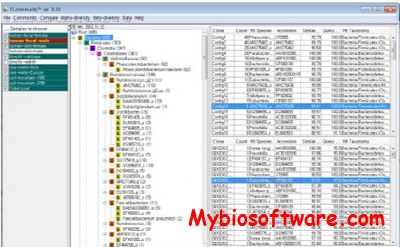Seed
:: DESCRIPTION
Seed (Simple Exploration of Ecological Datasets) is an R/Shiny package for visualizing ecological data. It provides a visual interface for generating a wide variety of plots, including histograms, scatterplots, bar plots, stacked bar plots, PCoA plots, cluster dendrograms, and heatmaps.
::DEVELOPER
Daniel Beck , Christopher Dennis at christozoan@gmail.com.
:: SCREENSHOTS
N/A
:: REQUIREMENTS
- Linux
- R
:: DOWNLOAD
:: MORE INFORMATION
Citation
Seed: a user-friendly tool for exploring and visualizing microbial community data.
Beck D, Dennis C, Foster JA.
Bioinformatics. 2014 Oct 20. pii: btu693.
